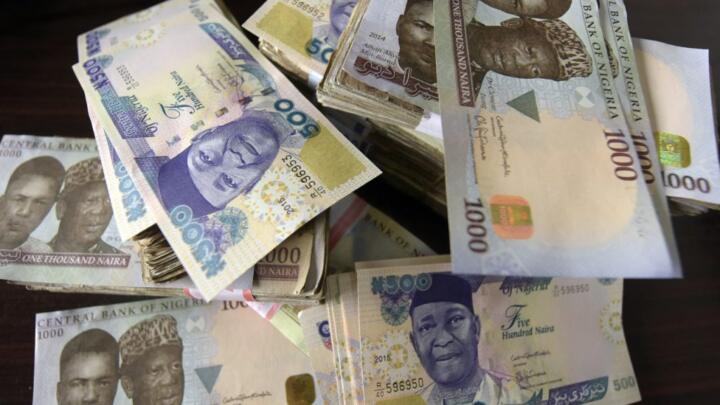The International Monetary Fund (IMF) has projected that Nigeria’s economy could experience relative stability despite the sharp depreciation of the naira, which recently fell to 1,654.09/$ in the parallel market. This drop reflects ongoing challenges in the country’s foreign exchange (forex) management, inflationary pressures, and a tightening global economic environment.
Naira Depreciation and Its Drivers
The recent weakening of the naira against the U.S. dollar has raised concerns among both economic experts and the public. This depreciation can be attributed to multiple factors, including dwindling foreign reserves, reduced oil revenues, and rising demand for foreign exchange, particularly from import-dependent sectors.
Nigeria’s reliance on crude oil exports means that fluctuations in global oil prices significantly impact its foreign reserves. The combination of reduced revenue from oil exports and a persistent demand for foreign exchange has created a supply-demand imbalance, putting pressure on the naira.

Additionally, the Central Bank of Nigeria’s (CBN) policies surrounding the official exchange rate and its limited forex interventions have exacerbated the situation. This has led many businesses and individuals to turn to the parallel market, where the exchange rate is significantly higher than the official rate.
### IMF’s Assessment and Economic Outlook
Despite the naira’s depreciation, the IMF remains cautiously optimistic about Nigeria’s economic outlook. In its latest assessment, the IMF acknowledged the forex challenges but suggested that the country’s economy could stabilize in the medium term, provided certain structural reforms and policy adjustments are implemented.
According to the IMF, maintaining macroeconomic stability will depend on Nigeria’s ability to manage its fiscal deficit, reduce inflation, and implement effective monetary policies. The organization also emphasized the importance of boosting non-oil revenues, improving transparency in forex management, and fostering an enabling environment for foreign direct investment (FDI).
### Inflation Concerns
One of the most immediate impacts of the naira’s depreciation has been rising inflation. As the cost of imported goods increases due to the weaker currency, consumers are facing higher prices for essential items, including food, fuel, and household products. This has exacerbated the already high inflation rate, which stood at 32.70% as of September 2024, according to the National Bureau of Statistics (NBS).
The IMF highlighted inflation control as a critical priority for the Nigerian government. It recommended that the CBN take measures to tighten monetary policy and enhance price stability. The IMF also urged the government to focus on policies that address supply-side constraints in key sectors such as agriculture, manufacturing, and services, which could help ease inflationary pressures.
### Forex Management and CBN’s Role
The IMF has consistently called for greater transparency and flexibility in Nigeria’s forex management system. It has urged the CBN to adopt a unified exchange rate system that reflects market realities, as this could help restore investor confidence and reduce distortions in the economy.
In response to the forex challenges, the CBN has taken steps to address liquidity shortages and manage demand for foreign exchange. However, the IMF noted that more comprehensive reforms are needed to resolve the underlying issues. Improving forex availability, streamlining the process for obtaining foreign exchange, and fostering a more predictable policy environment are key measures that could support the naira’s recovery.
### The Impact on Businesses and Investors
The continued depreciation of the naira poses significant challenges for businesses operating in Nigeria, particularly those reliant on imported goods and services. Companies in industries such as manufacturing, retail, and aviation have been hit hard by the increased costs of procuring foreign exchange, which have eaten into profit margins and led to price hikes for consumers.
Foreign investors, who often seek stability and predictability in exchange rate regimes, have also been cautious about committing funds to Nigeria. The uncertainty surrounding the naira has deterred potential investments, especially in sectors like infrastructure, real estate, and energy.
However, the IMF noted that if Nigeria can implement the necessary reforms and improve forex transparency, investor sentiment could improve. A stable exchange rate would provide a more conducive environment for FDI, which is essential for long-term economic growth.
### Structural Reforms for Economic Stability
To achieve lasting economic stability, the IMF has recommended that Nigeria prioritize structural reforms. These include diversifying the economy away from its dependence on oil, boosting agricultural productivity, enhancing public financial management, and addressing infrastructure deficits.
By diversifying the economy, Nigeria could reduce its vulnerability to external shocks, such as fluctuations in global oil prices. The IMF also emphasized the need for increased investment in critical infrastructure, including transportation, power, and digital infrastructure, which are essential for improving productivity and fostering economic growth.
Additionally, improving governance and reducing corruption were highlighted as critical factors for ensuring the effective implementation of reforms and policies. By strengthening institutions and ensuring transparency in public sector operations, Nigeria could build a more resilient economy capable of withstanding both domestic and external pressures.
Conclusion
While the recent drop of the naira to 1,654.09/$ in the parallel market has raised concerns about the state of Nigeria’s economy, the IMF remains cautiously optimistic about the country’s prospects for stability. The IMF’s projections suggest that with the right mix of policy adjustments, fiscal discipline, and structural reforms, Nigeria can overcome its current challenges and build a more stable and diversified economy.
However, the road to stability will require concerted efforts from both the government and the private sector. Addressing the root causes of the naira’s depreciation, reducing inflation, improving forex management, and attracting foreign investment are crucial steps that will determine the future trajectory of Nigeria’s economic growth.
Support InfoStride News' Credible Journalism: Only credible journalism can guarantee a fair, accountable and transparent society, including democracy and government. It involves a lot of efforts and money. We need your support. Click here to Donate
